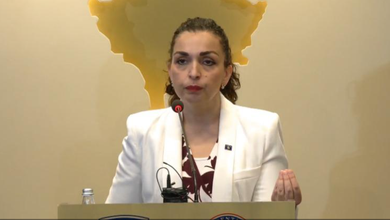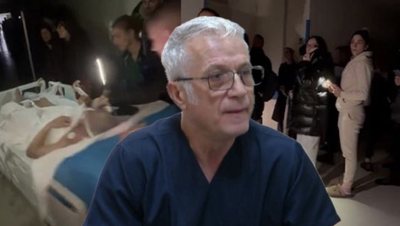
The Kosovo Post has taken control of a facility in Gracanica, near Pristina, where the Serbian Post was located until January 15 of this year. It was closed as part of a broad campaign to eliminate institutions south of the Ibar River that operated according to the Serbian system.
Kosovo considers Serbian parallel institutions illegal, and their closure began in early 2024, despite criticism from the international community that an alternative solution should first be found for providing services to citizens, who are mainly from the Serbian community.
Kosovo Serbs receive various incomes from the Serbian budget, some of which are paid to them at the Serbian Post counters, such as child or maternity allowances, pensions, social assistance, and others.
It is currently unknown whether Posta e Kosova will open a new branch in the acquired facility, or will use it for other purposes.
Kosovo institutions have not yet declared about today's action.
The Director of the Serbian Post for Kosovo, Ivan Milojevic, who was present today during the takeover of the facility by the Post of Kosovo and the Ministry of Industry, Entrepreneurship and Trade (MINT), told reporters that in mid-July the owner changed in the Kosovo cadastre, and described this as "usurpation", as "we have evidence that we built this post office ourselves in 2004".
"There was a small, old post office there, about thirty square meters, while what you see today was the center of the Serbian Post Office in Kosovo," said Milojevic, describing it as "illegally taken."
"My message is that we will fight with all legal means to prove this in court. But, you know how it is when the judge both sues and judges you," he added.
Radio Free Europe/Radio Liberty has reached out to MINT with a request to comment on Milojevic's statements, but has not received a response by the time of publication of this news.
In addition to the Post of Serbia, the Postal Savings Bank, the National Bank of Serbia, the Pension and Disability Insurance Fund directorates, social work centers, municipal public enterprises, temporary municipal bodies and many others have also been closed over the past two years. REL






















